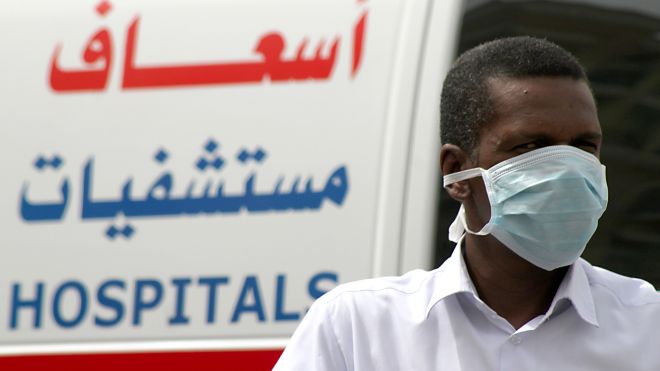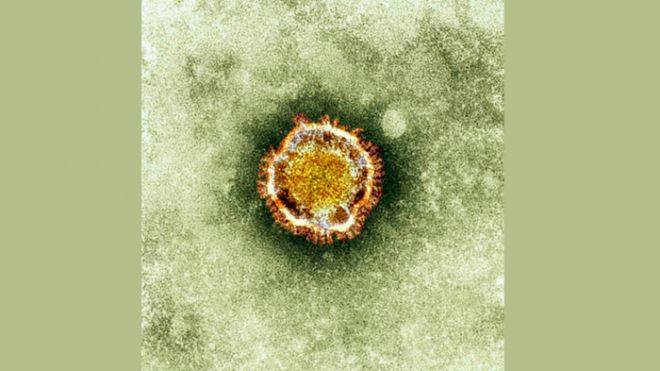
The World Health Organization on Monday urged health workers around the world to be on the alert for symptoms of the deadly Middle East respiratory syndrome coronavirus (MERS), which has the potential to circle the globe and cause a pandemic. The United Nations agency, which issued new, long-awaited guidance to countries on influenza pandemics, said the world was also in the same “alert phase” for two human strains of bird flu - H5N1, which emerged a decade ago, and H7N9, first detected in China in March. “We are trying to find out as much as we can and we are concerned about these (three) viruses,” Andrew Harper, WHO special adviser for health security and environment, told a news briefing on its new scale for pandemic risk. The interim guidance, to be finalized later this year, incorporates lessons from the 2009/2010 pandemic of H1N1 swine flu, which caused an estimated 200,000 deaths, roughly in line with annual seasonal flu. Having been adjusted to include the notion of severity when assessing risk, the new scale has just four phases against six previously and is intended to give countries more flexibility in judging local risks. “International concern about these infections is high, because it is possible for this virus to move around the world. There have been now several examples where the virus has moved from one country to another through travelers,” the WHO said of MERS, which causes coughing, fever and pneumonia. Travelers have carried the virus to Britain, France, Germany and Italy. Infected people have also been found in Jordan, Qatar, Tunisia and the United Arab Emirates. “Consequently, all countries in the world need to ensure that their healthcare workers are aware of the virus and the disease it can cause and that, when unexplained cases of pneumonia are identified, MERS-CoV should be considered.” MERS-coronavirus, a distant relative of SARS that emerged in Saudi Arabia last year, has been confirmed in 55 people worldwide, killing 31 of them. Forty cases occurred in Saudi Arabia, many in a hospital in the eastern province of al-Ahsa. “The overall number of cases is limited but the virus causes death in about 60 percent of patients,” the WHO said, reporting on a week-long mission of international experts to Saudi Arabia that ended on Sunday. “So far, about 75 percent of the cases in the Kingdom of Saudi Arabia have been in men and most have occurred in people with one or more major chronic conditions.” But the source of the MERS virus remained unknown, it said. Clusters of cases have occurred in families and health facilities, indicating a limited capacity to spread among people in close contact with an infected person, it said. All countries in the Middle East should urgently intensify disease surveillance to detect any MERS infections, it said. The WHO has not yet drawn up advice for Travelers ahead of the annual haj pilgrimage in October, which draws millions of Muslims to Saudi Arabia.source : http://www.foxnews.com/health/2013/06/10/who-mers-coronavirus-has-potential-to-cause-pandemic/

